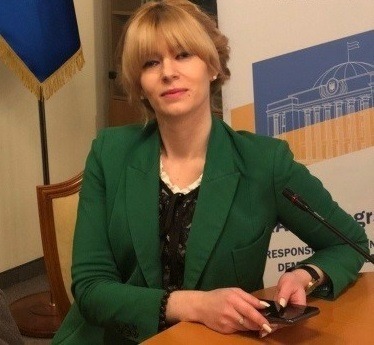With the onset of the full-scale war, Ukraine found itself in a challenging situation: tax revenues decreased, while the need to significantly increase defense funding emerged. Additionally, the number of people requiring government support grew, primarily including internally displaced persons and those who lost their jobs. At the same time, the Ukrainian government’s ability to attract funds on external and internal markets diminished. Assistance from international financial organizations, the EU, the US, and other countries multiplied, but it has been irregular and insufficient. Meanwhile, Ukraine can finance its defense solely through its own funds – that is, through paid taxes.
That is why the government began reintroducing certain taxes in the summer after a significant tax reduction in March and April 2022. In this article, we examine the main tax changes that took place in Ukraine after the full-scale invasion by the Russian Federation on February 24 and discuss which of them are worth preserving and which need to be reviewed.
Swift, but not always well-thought-out, steps to support businesses
On March 3, the Verkhovna Rada of Ukraine approved significant tax benefits by adopting several laws on changes to taxation during martial law. On the same day, the MPs established specific provisions for reporting during martial law, including the suspension of deadlines set by tax legislation (i.e., deferring tax payment and reporting), and implemented a moratorium on all types of tax audits. They also exempted those who were unable to pay taxes on time from liability. Therefore, in the first days following the introduction of martial law, the Verkhovna Rada made decisions that allowed for easing the shock for businesses and entrepreneurs.
One of the controversial changes in tax legislation was the possibility for almost all companies with a turnover of up to 10 billion UAH to switch to a simplified taxation system with a 2% turnover tax instead of corporate income tax and VAT (Individual entrepreneurs in the third group on the simplified taxation system were also allowed to pay a 2% tax instead of 5% of their income). Starting from April, even companies with annual revenue exceeding 10 billion UAH were allowed to transition to this system, with the exception (according to Article 291.5 of the Tax Code of Ukraine) of individuals and legal entities engaged in the following sectors: gambling; foreign currency exchange; production and trade of excisable goods; extraction, production, and sale of precious metals and gemstones; enterprise management activities; as well as postal and communication services. However, in mid-April, Parliament enabled legal entities and individual entrepreneurs engaged in organizing gambling activities, producing and selling jewelry, and financial activities to transition to the 2% system.
As we wrote earlier, this decision reduced tax payments when there was no need for it since companies that incurred losses were already exempt from paying corporate income tax. Expanding the “simplified taxation system” to all entities in the long term is harmful both for the budget and the development of domestic businesses. Not all companies could transition to the 2% system as it would result in the loss of their tax credits. Consequently, importers gained a more significant advantage from the new system as they stopped paying VAT, while domestic producers continued to pay it. As a result, this system worsened the competitiveness of Ukrainian companies.
From April to June, the tax exemptions provided at customs almost doubled the revenue collected by the customs for the general and special funds of the state budget during that period. For example, the amount of exemptions from import duties, excise taxes, and VAT on imported cars from April 1 to July 1 amounted to 26.1 billion UAH, while another 14.8 billion UAH were “spent” on fuel exemptions, including zero excise tax and a reduced VAT rate of 7%. However, under the conditions of a fixed exchange rate, the actual encouragement of imports led to the depletion of foreign currency reserves. Therefore, from July 1, import taxes were reinstated, simultaneously lifting import restrictions. The next anticipated step should be canceling the permission for companies engaged in organizing gambling activities to remain on the simplified taxation system. A corresponding bill has already been registered in Parliament.
Royalties on natural gas
In order to support companies involved in natural gas extraction, starting in May, Parliament allowed them to pay royalties based on the sale of gas rather than its injection into storage. Similarly, electricity producers were permitted to pay excise tax only after receiving payment for the supplied energy.
The next step in resolving the situation with natural gas extraction in Ukraine was the adoption of a law in September that enables “linking” the rent to domestic prices for natural gas. This approach is justified when the internal price at which private extraction companies sell gas is significantly lower than the European price, and gas exports have been banned since March 2022.
Taxation and reporting for individual entrepreneurs during the war
During the initial months of the full-scale war, lawmakers significantly reduced the tax burden on individual entrepreneurs. Starting from April 1, 2022, until the end of martial law, individual entrepreneurs in the first and second groups are exempted from paying the unified tax (and therefore are not required to file a unified tax declaration), as well as from paying the Single Social Contribution (SSC) for themselves and for the employees mobilized to the Armed Forces.
Extension of deadlines prescribed by tax legislation
At the beginning of March, the Verkhovna Rada of Ukraine suspended the deadlines for taxpayers and controlling authorities as prescribed by tax legislation and halted tax audits. The VAT Electronic Administration System operation was also suspended, preventing taxpayers from registering tax invoices.
However, in May, the Verkhovna Rada obliged taxpayers who have the ability to fulfill their tax obligations in a timely manner to comply again with the deadlines for tax payment, submission of tax reports, and registration of tax invoices. The operation of the VAT EAS was resumed, and entities were required to register tax invoices and adjustment calculations, for which the registration deadline fell between February 24 and May 27, in the Unified Register of Tax Invoices by July 15. Taxes and fees that were “overdue” during March-May 2022 were required to be paid by the end of July. Some deadlines related to tax audits were also partially reinstated.
Moratorium on tax audits and exceptions to it
At the beginning of March, Parliament adopted a decision to halt ongoing tax audits and refrain from initiating new ones. The moratorium did not apply to desk audits of declarations or amended calculations (if submitted) and desk audits of tax declarations from taxpayers in the fourth group of the unified tax.
However, in May, tax authorities were once again allowed to initiate (or continue previously halted) desk, on-site, and documentary unscheduled audits upon the taxpayer’s request in cases related to reorganization, liquidation, deregistration of taxpayers, as well as based on applications for budgetary VAT refunds or declarations with negative VAT amounts exceeding 100,000 UAH, or if there is information about violations of currency legislation regarding the deadlines for returning foreign currency proceeds or receiving goods from foreign economic operations. For all other cases, the moratorium on audits remains in effect until the end of the state of war.
Special taxation of fuel
Due to the war and the government’s attempts to control prices, Ukraine faced a threat of fuel shortage. For a certain period, fuel was sold only with coupons that could be purchased by enterprises. Later on, the government allowed for including delivery costs in the fuel price, and on March 15, Parliament reduced the VAT on fuel from 20% to 7% and reduced excise taxes to zero. Additionally, the Cabinet of Ministers permitted the circulation of “Euro 3” and “Euro 4” fuel (previously, only fuel of at least Euro 5 class was allowed), which provided an additional resource for the needs of the Armed Forces of Ukraine.
The reduction of taxes on fuel helped prevent a significant increase in its prices. However, it was clear that the budget would lose a portion of its revenue. There were discussions for some time about the need to reintroduce these taxes. The Ministry of Economy emphasized the importance of reintroducing excise taxes to fund the Road Fund, which is used for road infrastructure restoration. Eventually, a compromise decision was adopted by the lawmakers, whereby the VAT on fuel remained at 7%, and excise taxes were only partially reintroduced (reduced excise tax rates will be in effect until the end of martial law, but no later than July 1, 2023). According to experts’ estimates, as a result, the price of fuel will increase by approximately 1 UAH.
There was also a contentious issue regarding the cancellation of the provision introduced in March that directed funds from the Road Fund primarily toward debt repayment and defense needs. Eventually, the deputies decided that in 2022, half of this amount would be allocated to constructing and improving border checkpoints between Ukraine and the EU.
Exemption from paying environmental tax, land tax, and lease payments for specified lands
The Verkhovna Rada has exempted taxpayers* from paying the environmental tax (Article 243 of the Tax Code of Ukraine) for the year 2022 if the taxable object is registered in territories where hostilities are taking place or which are temporarily occupied by Russia. Additionally, Parliament has abolished the payment for land (land tax and land lease fee for state and communal land plots**) from March 1, 2022, until December 31 of the year following the year in which martial law is terminated or canceled. This provision applies to territories where hostilities are taking place, temporarily occupied territories, as well as territories identified by regional military administrations as contaminated with explosive objects and/or containing fortification structures. In both cases – exemption from the environmental tax and payment for land – the list of such territories is to be compiled by the Cabinet of Ministers. However, the list has not been adopted yet because the Ministries cannot determine who should be responsible for its formation. Since it concerns taxes, the Ministry of Finance could potentially be responsible. Alternatively, the Cabinet of Ministers could apply the territorial distribution used for providing social benefits for IDPs. Therefore, currently, local authorities independently make decisions on collecting payment for specific plots or exempting them from taxation.
Tax benefits for industrial parks
On June 3, the Verkhovna Rada introduced tax benefits for industrial parks, which include exemptions from value-added tax (VAT) and import customs duties for new equipment and components (without the right to lease or use it by third parties), exemption from profit tax for a period of ten years (if the tax amount is invested in production) and granting local self-government bodies the right to establish preferential property tax rates and land fees. These changes to the Tax Code were planned during the adoption of the updated “Law on Industrial Parks” in 2021. Adopting subordinate acts that regulate the procedures for registering industrial parks and obtaining benefits will be crucial for implementing the relevant provisions and reducing opportunities for abuse. Overall, industrial parks (currently, 55 industrial sites are included in the Register of Industrial Parks) are generally not occupied like other types of special economic zones. Therefore, it would be better to direct the efforts of the government and Parliament towards simplifying tax administration and, for example, facilitating easier access to power grids, which businesses consider a significant obstacle to development.
In addition, starting from July 1, laws adopted on February 17 came into effect, which exempted state scientific and higher education institutions from VAT and customs duties on equipment imported for their own scientific activities. Once again, it is unlikely that these laws will contribute to the development of science in Ukraine, as it requires changing the entire management system of the sector.
Tax benefits for charitable and humanitarian assistance
To create favorable conditions for providing charitable assistance during the war, on March 15, Parliament introduced tax incentives for organizations involved in providing charitable aid. Fuel transferred to the ЗСУArmed Forces or Ukraine or Territorial Defense Forces, as well as humanitarian aid, is exempt from value-added tax (VAT). Targeted charitable assistance provided to combatants, individuals residing in conflict areas, displaced persons, and those affected by the aggression of the Russian Federation is not subject to personal income tax and military duty. Additionally, individuals are allowed to claim a tax deduction for charitable donations up to 16% of their annual income (previously 4%) and allocate charitable assistance as expenses in 2022.
On April 1, Parliament clarified that humanitarian aid imported by non-governmental organizations would not be subject to VAT.
From September, new changes to the legislation (2516-IX and 2520-IX) came into effect, which exempt charitable assistance provided to family members of wounded and deceased participants in combat operations from taxation. These changes also specify a list of services and funds that are not considered taxable income for volunteers or members of non-governmental organizations if received from such organizations. This includes funds provided by charitable organizations, public associations registered in the Register of Non-Profit Institutions and Organizations, all-Ukrainian public associations of persons with disabilities and their unions, as well as tax-paying participants of congresses, etc.
Which changes need to be reversed, and which ones should be kept?
Returning to the “regular” system of corporate taxation should be done now, without waiting for the end of martial law, as introducing a 2% turnover tax for all is detrimental to both the budget and a significant portion of enterprises. The tax exemptions for individual entrepreneurs of the 1st and 2nd groups can be maintained to support small business owners. It is advisable to cancel the privileges for techno-parks and research institutions, as not many enterprises are likely to take advantage of them, and their existence indicates the government’s propensity (in a broad sense) to implement uneven playing field rules. After the cessation of martial law, humanitarian needs will remain significant for some time, so rushing to cancel exemptions for charitable and humanitarian assistance is not advisable. The pace of the post-war recovery needs to be considered. The reintroduction of environmental and land taxes may also need to be postponed, as demining and territory restoration may require significant time.
In general, it will be possible to return to discussing tax reform after the war. However, it is unlikely that we can consider a radical reduction in taxes, as the needs of the state budget will be significant. Nevertheless, it is possible to introduce business incentives through other methods, such as assisting Ukrainian enterprises in accessing external markets.
Disclaimer: This article was prepared with the financial support of the European Union. Its content is the sole responsibility of Aliona Hryshko and Oleksandra Betlii and does not necessarily reflect the views of the European Union.
Key tax changes during martial law
* Entities engaged in economic (entrepreneurial) activities, legal entities not engaged in economic (entrepreneurial) activities, budget-funded institutions, public and other enterprises, institutions, and organizations, permanent establishments of non-residents, including those performing agency (representative) functions for such non-residents or their founders.
** Local authorities determine land tax rates within the maximum share of the normative monetary valuation. The maximum share can range from 0.1% to 12%, depending on the type of land.
Attention
The authors do not work for, consult to, own shares in or receive funding from any company or organization that would benefit from this article, and have no relevant affiliations





